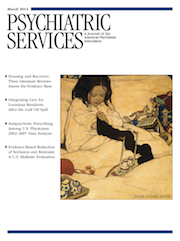The Newlyweds
Nell Freudenberger’s third highly acclaimed novel The Newlyweds is an exciting exploration of the life of a Muslim Bengali woman married to a white American Christian male living in Rochester, New York. Amina Mazid, the main character of the novel, struggles with identity, culture, and the conflict of West and East. It is a challenge for a Caucasian American woman to write about the life of a woman of color without marginalizing that culture and at the same time overglamorizing European culture. The concern is that the narrative will be overly simplistic and fraught with grotesque stereotypes.
Freudenberger does a good job in painting a full picture of the struggles that Amina faces. Growing up in Bangladesh, white beauty and Western society are the gold standard of upward mobility. A cousin of Amina remarks on how fortunate Amina is to be married to an American. Yet there is no real emotional connection in the marriage, and Amina later realizes that there is a beauty of her culture that she has not fully appreciated. Coming to America, Amina is immediately confronted with the reality that all is not well in the land of opportunity, with the destruction of a mailbox and her husband’s characterization of the culprits. Amina’s husband, George, who means well but struggles to connect with his wife, innocently minimizes her faith by stating that he is willing to convert to Islam to make his wife and her family comfortable. This attempt to connect with his wife is admirable but does not fully take into account the conflict that Amina faces as she navigates between faith and culture and East and West.
Freudenberger skillfully avoids stereotypical traps by giving a full range to her characters. For example, the initial suitor to Amina, Nasir, a young man who is the son of a dear confidant of Amina’s father, becomes very rigid in the practice of his faith while in Europe, only to become more flexible when he moves back to Bangladesh. Amina compares his experience with her own from the perspective that she is married to an American who helped her assimilate to her new country, whereas Nasir, while living in England in an apartment with fellow Bengalis, was not fully integrated in the society.
Kim, the cousin of Amina’s husband, is an interesting character with cluster B traits. Amina is intrigued by her confidence but views her as a fierce competitor. A clear antagonist to Amina, Kim’s role in the book is essential in helping Amina gain insight about herself. The interplay between these characters is the strongest aspect of the book. Examining Kim’s obvious enjoyment of white privilege along with her desire to connect with people of color in her own terms is fascinating. Amina is forced to deal with these contradictions and how this will affect the way she views herself, her marriage, and her culture. The Newlyweds is an interesting experiment to help see the world from the eyes of a South Asian Muslim woman’s perspective and thereby elicits empathy for an overlooked segment of the world’s population.



